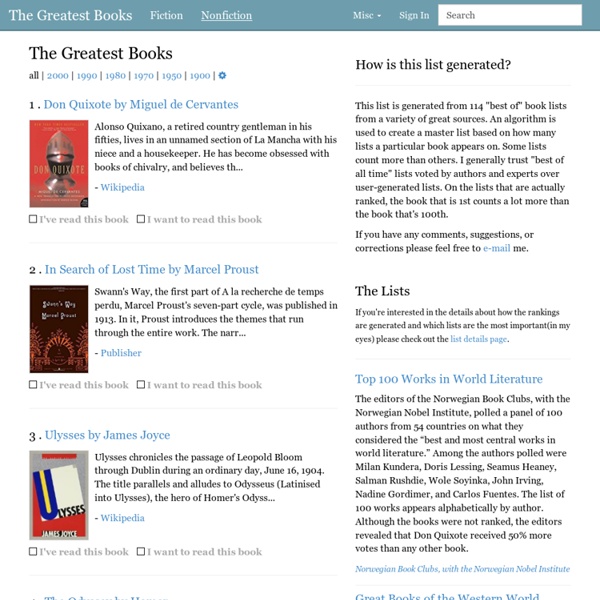The Greatest Books: The Best Books of All Time - 1 to 50
Wasted Talent - a webcomic by Angela Melick
Comics and Animation!
All Things Medieval
FormSite - Online Form Builder. Create HTML forms and surveys.
Zidbits - Learn something new every day!
How To Write Shop |
The Zombie Nation is a Funny zombie webcomic about the coming zombpocalypse!
THE Tech Scoop
Fanboy.com
Related:
Related:



